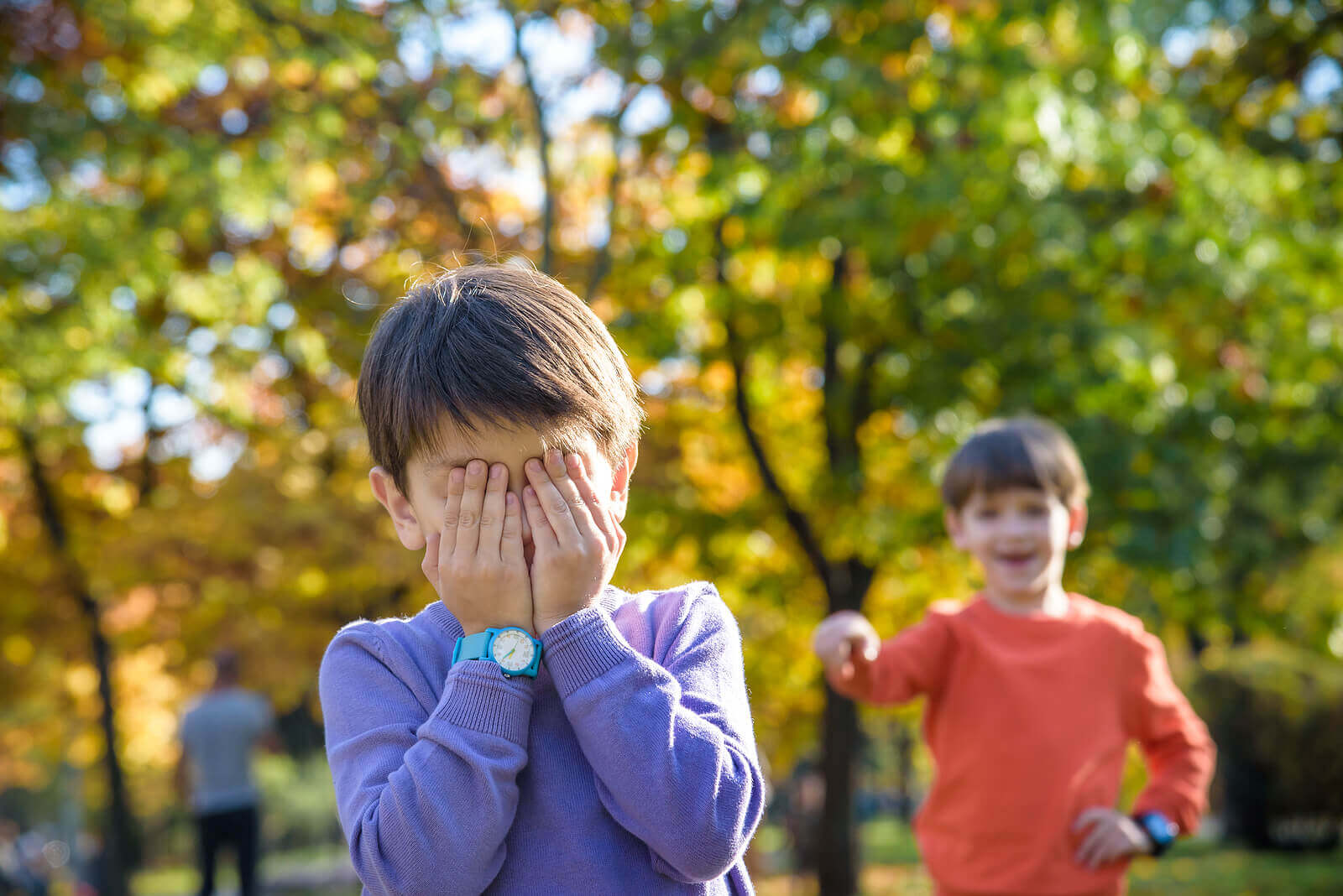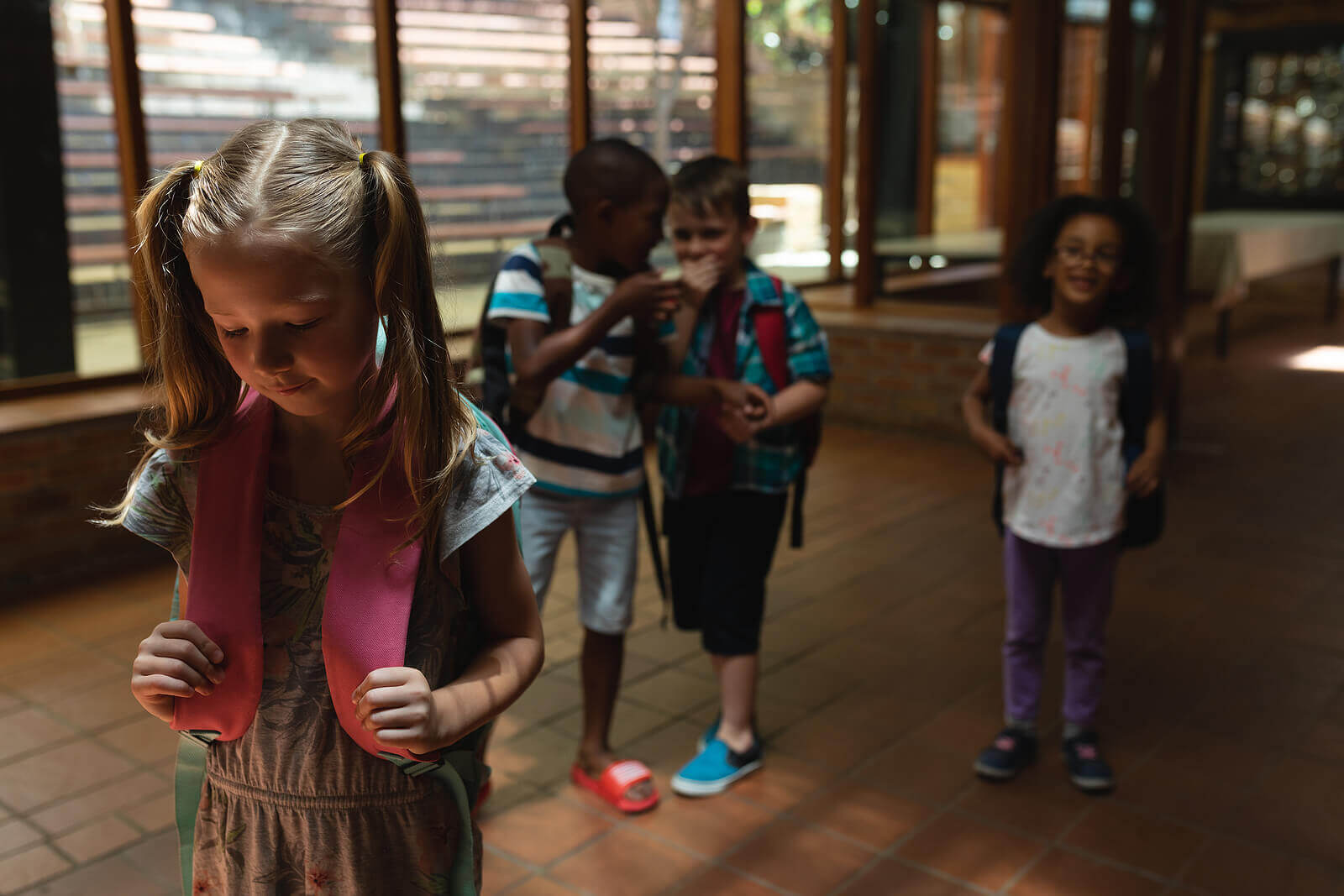Bullying Prevention: It's Everybody's Job

We need to be aware of the fact that we all play a key role when it comes to preventing bullying, which is why we need to take responsibility for our actions.
It’s essential that we give visibility to this issue and that we debunk some of its myths. Indeed, this is not “kid stuff.” We’re talking about a situation of violence that will have a strong impact on the mental health of the young people involved.
Society at large needs to check the values and principles that we hold close and we’re transmitting to the new generations. We need to understand the enormous impact that bullying can have on our children. We need to be ready to eradicate this situation — from whichever place we’re at.
What can parents do to prevent bullying?

Bullies
Family is the child’s first agent of socialization. Families internalize the main values, attitudes, and behaviors. For this reason, it’s of paramount importance that parents pay attention to what they’re teaching to their children — not just with their words, but with their acts as well.
Frequently, children who bully their classmates show serious lacks in their education: lack of affection, absence of limitations, excessive parental demands… On the other hand, children who witness or experience violent behaviors in their own homes may be led to behave in the same way at school.
If your child exhibits any of the following characteristics, take notice of it and try to address it as soon as possible:
- They show manipulative behaviors or try to dominate other people when relating to them.
- No frustration towards tolerance. Their temperament is explosive and they don’t recognize their mistakes.
- They show low self-esteem and don’t know how to deal with the envy they feel.
- They lack empathy for other living beings.
- They react in an arrogant and defiant way when you correct them or try to discipline them.
Bully-victims
On the other hand, if you find that you’re the parent whose child suffers from school bullying, you need to know that your reactions and support can make a difference. Probably, your child feels shame, guilt or fear for what’s happening to them and may not find the courage to talk about it. For this reason, try to beware of the signals and make sure you offer them your complete support and understanding.
As soon as you become aware of the situation your child is going through, take action. Talk to the school and the authorities if you think the former shows no disposition to collaborate.
Encourage your son or daughter to see a child psychologist if you think it’s necessary. And, above all, tell them again and again that there is nothing wrong with them and that they’re not guilty at all. This will be good for their self-esteem and will make them gain more trust and feel accompanied in the process.
What can schools do to prevent bullying?
As schools are the scenarios where bullying takes place, they play a key role in bullying prevention. Schools should take a clear and firm stand on the matter and educate young people in values, tolerance and diversity. In the same way, schools are to promote cooperation and to adopt firm measures against bullying.

One of the most successful proposals so far is the KiVa method, which was first employed in Finland and is currently used in various countries. The focus of this method isn’t on trying to empower the victim or promoting empathy for the bully. This novel and efficient approach is centered around the spectators — the rest of the children and classmates who witness the aggression.
If the spectators are aware and able to take a stand for the victim and reject violence categorically, the bully will stop their behavior. Not seeing the reaction they were expecting —that is, not gaining popularity, but the opposite of it — they’ll stop.
The KiVa method shows us in a conclusive way that bullying prevention is everybody’s job. We are all part of the problem or the solution. Hence, we need to be aware of this hard reality every day and offer our support to those young people who need it.
We need to be aware of the fact that we all play a key role when it comes to preventing bullying, which is why we need to take responsibility for our actions.
It’s essential that we give visibility to this issue and that we debunk some of its myths. Indeed, this is not “kid stuff.” We’re talking about a situation of violence that will have a strong impact on the mental health of the young people involved.
Society at large needs to check the values and principles that we hold close and we’re transmitting to the new generations. We need to understand the enormous impact that bullying can have on our children. We need to be ready to eradicate this situation — from whichever place we’re at.
What can parents do to prevent bullying?

Bullies
Family is the child’s first agent of socialization. Families internalize the main values, attitudes, and behaviors. For this reason, it’s of paramount importance that parents pay attention to what they’re teaching to their children — not just with their words, but with their acts as well.
Frequently, children who bully their classmates show serious lacks in their education: lack of affection, absence of limitations, excessive parental demands… On the other hand, children who witness or experience violent behaviors in their own homes may be led to behave in the same way at school.
If your child exhibits any of the following characteristics, take notice of it and try to address it as soon as possible:
- They show manipulative behaviors or try to dominate other people when relating to them.
- No frustration towards tolerance. Their temperament is explosive and they don’t recognize their mistakes.
- They show low self-esteem and don’t know how to deal with the envy they feel.
- They lack empathy for other living beings.
- They react in an arrogant and defiant way when you correct them or try to discipline them.
Bully-victims
On the other hand, if you find that you’re the parent whose child suffers from school bullying, you need to know that your reactions and support can make a difference. Probably, your child feels shame, guilt or fear for what’s happening to them and may not find the courage to talk about it. For this reason, try to beware of the signals and make sure you offer them your complete support and understanding.
As soon as you become aware of the situation your child is going through, take action. Talk to the school and the authorities if you think the former shows no disposition to collaborate.
Encourage your son or daughter to see a child psychologist if you think it’s necessary. And, above all, tell them again and again that there is nothing wrong with them and that they’re not guilty at all. This will be good for their self-esteem and will make them gain more trust and feel accompanied in the process.
What can schools do to prevent bullying?
As schools are the scenarios where bullying takes place, they play a key role in bullying prevention. Schools should take a clear and firm stand on the matter and educate young people in values, tolerance and diversity. In the same way, schools are to promote cooperation and to adopt firm measures against bullying.

One of the most successful proposals so far is the KiVa method, which was first employed in Finland and is currently used in various countries. The focus of this method isn’t on trying to empower the victim or promoting empathy for the bully. This novel and efficient approach is centered around the spectators — the rest of the children and classmates who witness the aggression.
If the spectators are aware and able to take a stand for the victim and reject violence categorically, the bully will stop their behavior. Not seeing the reaction they were expecting —that is, not gaining popularity, but the opposite of it — they’ll stop.
The KiVa method shows us in a conclusive way that bullying prevention is everybody’s job. We are all part of the problem or the solution. Hence, we need to be aware of this hard reality every day and offer our support to those young people who need it.
All cited sources were thoroughly reviewed by our team to ensure their quality, reliability, currency, and validity. The bibliography of this article was considered reliable and of academic or scientific accuracy.
- Rojas Morales, J. M. (2017). Lo solucionamos como en Finlandia: El método KiVa. PublicacionesDidácticas, 81(1), 336-342.
- Torres Calero, C. J. (2019). Perfil psicológico de los niños acosadores que asisten a la escuela de educación básica fiscal “29 de mayo” en la ciudad de Quito en el periodo 2017-2018 (Bachelor’s thesis, Quito: UCE).
This text is provided for informational purposes only and does not replace consultation with a professional. If in doubt, consult your specialist.








